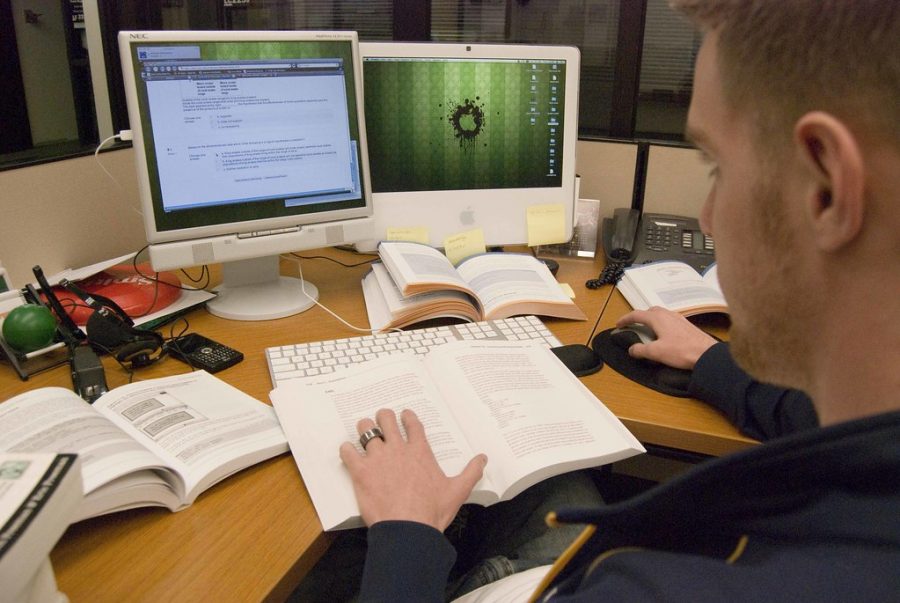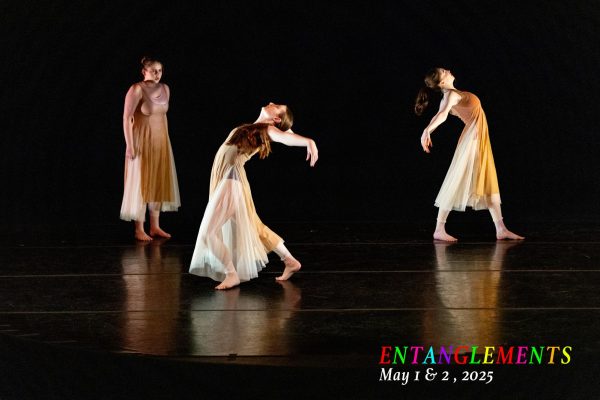Remote Assessments Present a Dilemma
Some think that taking online exams presents an opportunity for academic dishonesty
May 9, 2020
With the recent confirmation that school will be closed for the remainder of the year, teachers have been adjusting most facets of their lesson plans to accommodate the new changes. Consequently, not only have classes been altered, but assessments have gone virtual as well. Although some courses have declared an end to testing for the rest of the academic year, many have remained steadfast in their ways.
Assessing online poses new issues that were previously absent, putting each student’s integrity to the test. As the end of the semester approaches, grades are at stake, and exams in different classes have become increasingly important. However, with an entirely foreign system in place, much of the student body is skeptical of what ‘testing’ truly means moving forward.
On one end of the spectrum lie the students who have been rolling with the punches since the beginning of remote learning. Junior Charlotte O’Toole shares, “I’ve been really lucky because basically none of my teachers are doing online tests. I’ve had one small quiz, but she made it so that it timed out after a while so it was harder for people to cheat.” Small tactics like these can be quite effective in some cases, but perhaps not in all.
Tests are undoubtedly a core element of school, which raises the question: is a class without assessments productive? “I think it’s impossible to have school without tests because it’s hard to keep people motivated otherwise,” sophomore Sam Gibson notes, “However, I think teachers should understand that learning at home is very different than in class and then should write and grade tests accordingly.” This is certainly a trend among the student body, with many suggesting that exams be eliminated altogether.
Charlotte comments, “I think that we shouldn’t have any virtual tests at all. It’s a pandemic— what’s the need to put so much more stress on kids right now? You’re practically pushing them to cheat.”
Although many dislike admitting it, all of the stress, pressure and anxiety that has become a product of constant isolation does have the potential to cause some to cheat. “The sad reality is that there is really nothing anyone can do— teachers can’t be next to you to see what you’re doing, so Latin really needs to rely on the student body and students need to rely on each other to not cheat either. The circumstances are not ideal and there is really no easy answer,” senior Zaid Khan comments.
Academic dishonesty is never excusable, but what many have had to consider is whether anything good will actually come out of assessing students without proper supervision.
For most teachers, the whole concept of online learning is unfamiliar. Inevitably, let alone proctoring remote assessments. Statistics and economics teacher Mr. Kendrick shares, “When it became pretty clear we’d be teaching remotely for the remainder of the year, I revisited how I would assess students. This decision was driven by my shift in desired outcomes in my classes—I knew that we wouldn’t be able to move at the pace I had planned for the spring, so I revisited what I had hoped to cover with remote learning this spring.”
To add to the initial disarray of it all, academic integrity must also be factored into the equation. While some teachers have been working to prevent any dishonesty, there is only so much one can do. “Knowing it would be near impossible to feel that assessment integrity could be upheld in these conditions, I moved forward with plans to design any feedback opportunity as open-note, and in many cases, collaborative and asynchronous,” Kendrick adds.
And he is certainly not the only one. Many teachers have decided that engagement in the curriculum with low-stakes grades is the best way to proceed. This strategy, paired with the reduction of the fourth quarter’s significance in comparison to a student’s overall grade, has made for a much calmer student body and a more optimistic group of teachers.
Perhaps the nearness of the school year’s end is a blessing in disguise for the disputed issue that is virtual testing. With a mere month left to go, students and teachers only have to hold on for a little longer, even if it means hosting more unconventional classes and assessments. As of now, it can be safely said that everyone has reached a mutual understanding of the circumstances and is willing to adapt.


























































